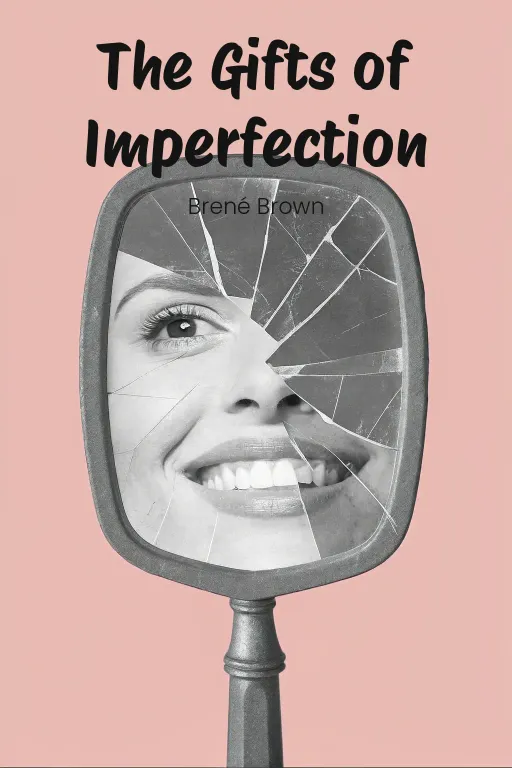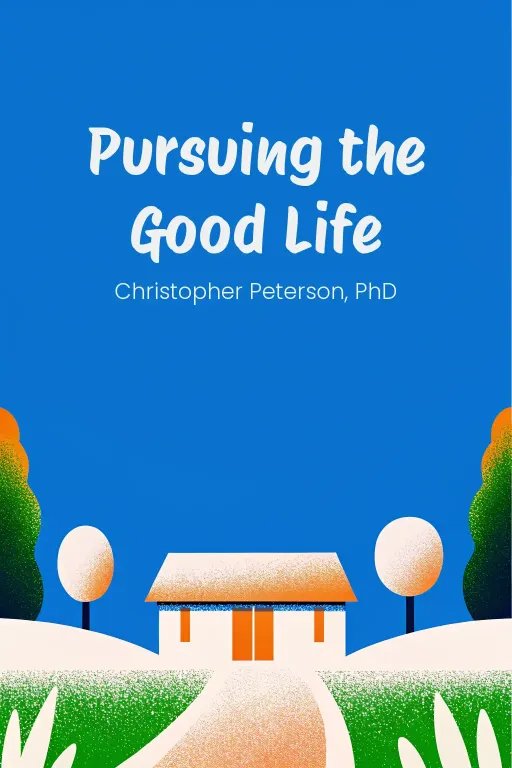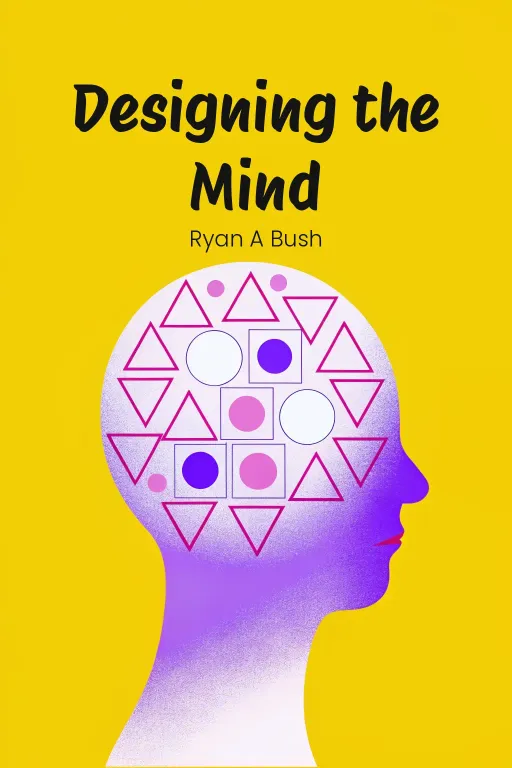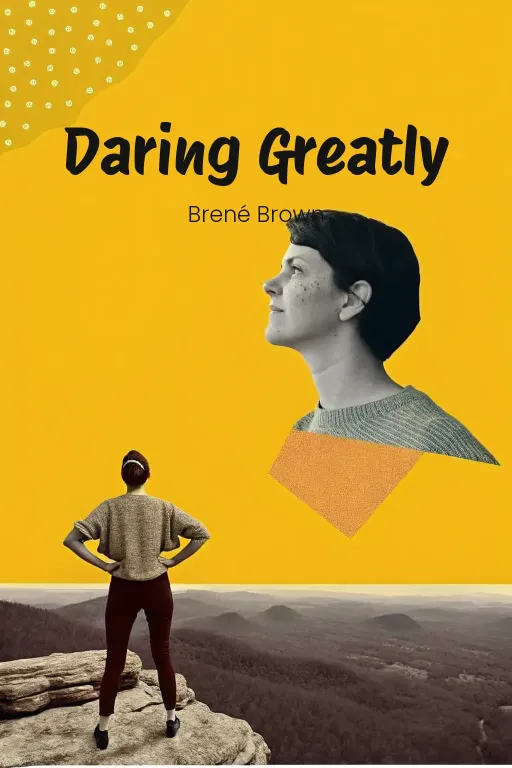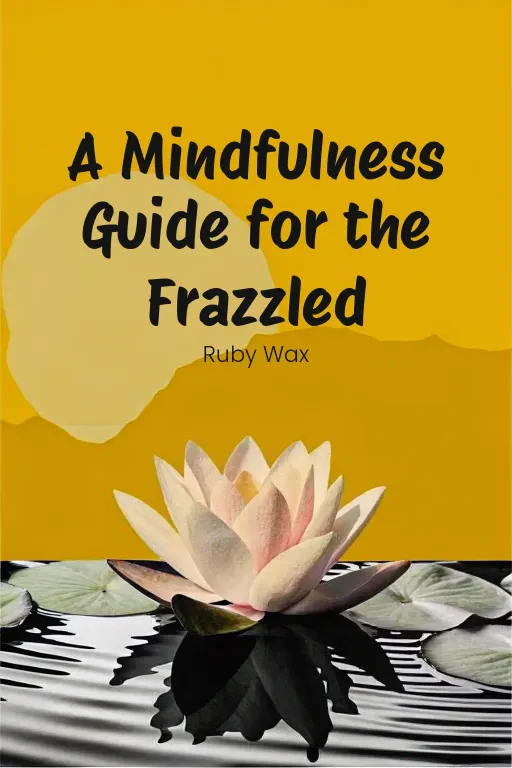
Mental Jukebox: Change Your Inner Playlist
Podcast by The Mindful Minute with Autumn and Rachel
The Surprising Solution to Overthinking
Introduction
Part 1
Autumn: Hey everyone, welcome! Tell me, does anyone else ever get stuck replaying the same negative thought over and over? You know, like a song on repeat? Maybe it’s "I'm not good enough," or "What if I mess everything up?" If that sounds familiar, then you're in the right place today. Rachel: Oh yeah, absolutely. Who hasn't wanted to shut down that mental jukebox from time to time? But Autumn, please tell me this isn't just another "think positive" kind of thing, is it? Autumn: Not at all, Rachel. Today we're getting into Jon Acuff’s Soundtracks. It’s a really insightful book that goes into overthinking, and more importantly, how it can really mess with our potential. Acuff calls those repetitive, negative thoughts "broken soundtracks." The book provides some really actionable tools, like affirmations and mindfulness, to help us replace the old, negative stuff with empowering thoughts. And the best part? It's not just fluff; it's backed by research and real-world examples. Rachel: Okay, you’ve got my attention now. So, what exactly are we going to be talking about today? Autumn: Great question, Rachel! We're going to break down three key things. First, we need to understand what overthinking actually is, and how these soundtracks in our heads influence what we do. Think of it like the secret playlist running in the background all day. Rachel: Right, because who doesn't want to realize their brain's been stuck on the “Greatest Hits of Self-Doubt” for years? Autumn: Exactly! Next, we’ll look at how to actually change those negative thoughts. Acuff gives us some really concrete ways to rewrite those mental loops into stuff that actually motivates us and helps us get things done. Rachel: So, hitting "next" on Spotify, but for your brain. I like it! And what’s the last thing we'll be discussing? Autumn: Last, we’ll talk about how to actually keep these changes going, by using the power of community and accountability. Think of it as making a playlist that’s so good, you don't want to skip anything. Rachel: Alright, mental playlists, community jams, flipping the script... I'm in. Let's dive in and get started.
Understanding Overthinking and Soundtracks
Part 2
Autumn: Okay, let's dive right into overthinking. Acuff describes it as these repetitive, unproductive mental loops, right? It's like you're stuck in a roundabout, just going around and around, not finding an exit. And the thing is, overthinking isn't just annoying; it “really” drains your mental energy, all while stopping you from actually doing anything. Rachel: It's so sneaky, isn't it? Because it feels productive. You tell yourself, “Oh, I'm just being thorough,” but really, you’re still in pajamas, just worrying about all these 'what ifs' instead of, you know, actually sending that email. Autumn: Exactly! Acuff tells this story about Scott, who wanted to ask for a raise but got totally caught up in this spiral of "what if" scenarios. What if his boss said no? What if it made things awkward at work? He just imagined all these things and froze up. Rachel: So, instead of just, you know, asking, he spent the whole night tossing and turning, imagining his boss turning into a fire-breathing dragon. A classic overthinker move, really. Autumn: Right. And this paralysis, it cost him more than just sleep, you know? It “really” held him back at work. Acuff says this happens all the time; overthinking can create stagnation, not just for people but for entire organizations. People get scared to take risks or share new ideas because they're so focused on the worst-case scenarios. Rachel: Okay, let's dig a little deeper. If overthinking is this mind trap we all fall into, what’s the difference between, say, just thinking something over and actually getting stuck? Autumn: Acuff calls them "soundtracks." I think of it as a brilliant analogy, your thoughts are like songs that keep playing in your head. Some soundtracks “really” get you going, they pump you up, while others—the "broken soundtracks," as he calls them—hold you back. Rachel: Broken soundtracks. The mental equivalent of that one sad person at the party who can only play breakup songs on repeat. Autumn: Exactly! A broken soundtrack is any negative thought that keeps you stuck. Like during the pandemic, when so many people were caught up in this "There's no point in trying" loop. This narrative just led to people giving up, you know, feeling stuck and not doing anything. Rachel: And Acuff uses this “really” simple but striking example of how people flipped that around, right? Like when some people chose to actually dress up during lockdown. Autumn: Yes! Instead of just wearing sweatpants every day, these people got dressed like they were going to the office. This small act disrupted the broken narrative and helped them get their motivation back. It “really” shows that action, even small actions, can rewrite your mental script. Rachel: Okay, so breaking these soundtracks sounds easy enough, but how do you actually catch these mental loops in action? Autumn: Great question, Rachel. Acuff offers a very systematic way to deal with them: through three filtering questions. First, "Is it True?" This one makes you think about if your thought is based on reality or if it’s just a fear that you’ve made up. Rachel: Like Cody's story, the magician who thought he couldn’t charge money until he was the best in the world? That felt true to him, but once he actually questioned it, it just fell apart. Autumn: Right. Cody had created this crazy imaginary rule—a fictional “magician’s tournament” that he had to win before he could feel valid. Once he realized that belief wasn't based on anything real, he was free to pursue his goals, like earning money for his magic. Rachel: Alright, what's the second filter? Autumn: The second question is, "Is it Helpful?" Even if a thought is technically true, it doesn’t mean it’s useful, right? Take Erin, for example. She would overthink every social interaction, picking apart everything she said long after the conversation was over. Sure, she might find a minor mistake, but it wasn't helpful, it just hurt her confidence. Rachel: Ah, so it's not about ignoring reality, but about asking, "Does thinking about this actually help me?" And if it doesn't, you just stop. Autumn: Exactly. And finally, the third filter: "Is it Kind?" Overthinking can be so harsh, right? People repeat these mean things to themselves, like “You’re not good enough” or “You’re going to fail.” Acuff points out that most of us would never say these things to a friend. So, why do we accept them from ourselves? Rachel: That's probably the hardest one for most people, to not just notice but actually challenge that kind of self-talk. It's like having these awful roommates in your head yelling insults all day, and you have to kick them out. Autumn: Exactly! The great thing about these three questions—Is it True? Is it Helpful? Is it Kind?—is that they give you a simple way to look at and deal with, ultimately replace these broken soundtracks. Rachel: Which, of course, raises the million-dollar question: what do you replace them with? Motivational anthems, I'm guessing? Autumn: Definitely, but let's save that for the next segment. For now, the key thing is recognizing and questioning your soundtracks. Once you identify and challenge those thoughts, you can make space for new, more positive ones to take over. Rachel: And that already feels so much more doable than just being told to, "Stop worrying so much." It's like finally getting some tools to clean up the mess in your head.
Transforming Negative Soundtracks
Part 3
Autumn: So, by digging into where overthinking comes from, we can start to deal with those negative mental loops. And that's exactly what we're going to do next—look at some real, actionable ways to change those broken soundtracks into helpful mental habits. Rachel: Okay, so we're moving from theory to practice now, right? Turning those negativity hits into something a bit more... motivating. Let's dive in. How do we actually start changing these mental soundtracks? Autumn: Well, one of the quickest ways to shift those negative narratives is by reframing our thoughts. It's about questioning the labels we put on our experiences and swapping them out with something that encourages growth, not fear. Acuff shares this great story about Deb and Bryan Meyer. They used to call their savings account the "emergency fund," which made them think about panic and scarcity. But once they renamed it the "opportunity fund," it totally changed how they saw it. Rachel: Right, because "emergency fund" sounds like you're just waiting for something bad to happen, like the roof leaking or the car breaking down. But "opportunity fund"—that's a completely different vibe. Now it feels like you have a safety net to explore new possibilities, not just prepare for the worst. Autumn: Exactly! Simply renaming it reframed their savings as a way to pursue opportunities, not just brace for disasters. Their relationship with money became way more optimistic. This idea that 'language shapes mindset' is super powerful. Just changing how you describe something can change how you feel about it. Rachel: So, there's a bit of psychology at play here, almost like... marketing to your own mind. You're selling yourself a new story, but it's one that actually helps you instead of holding you back. Autumn: Exactly! And another thing Acuff talks about for creating positive mental soundtracks is affirmations. They're just short, positive statements that you repeat regularly to counteract negativity. For example, Acuff uses the affirmation, "I've got a gift worth giving." It's simple, but it reinforces your self-belief and boosts your confidence. Rachel: Ah, here come the eye rolls, right? People are thinking, "Yeah, right, I'll just stare at a Post-it note on my mirror, and “poof”, my life will magically change?" Autumn: I totally get why people are skeptical. But hear me out—there's actual data to back this up. Acuff and Dr. Mike Peasley did a study with over 10,000 people. They found that regularly using affirmations reduced overthinking and increased productivity. It's not about “poof”, magic. It's about creating consistent reminders that gradually rewire how you think. Rachel: Okay, so affirmations aren't some kind of magic trick. More like... slowly stretching a tight mental muscle until it feels normal. Got it. But where do you draw the line? I mean, if I just start chanting, "I'm a billionaire genius philanthropist," my bank account probably won't agree. Autumn: That's such an important point. Affirmations need to be believable within the context of where you are now and where you want to be. Something broad but grounding, like, "Progress is a process, and I'm making strides," keeps it realistic while still motivating you. It's focusing on the journey, not some unrealistic fantasy. Rachel: That makes sense. And speaking of grounding things in reality, what about practical actions? Like in Melissa Byers' story? Her transformation wasn't just about repeating phrases. It was more about flipping her perfectionist mindset into something she could actually do, right? Autumn: Exactly. Melissa's usual thought was that she needed the "perfect" conditions to start exercising—perfect outfit, perfect schedule, perfect plan. But perfectionism is just another form of procrastination, and it was holding her back. Her simple shift—replacing "I need everything to be perfect" with "Be active"—changed everything. She was able to prioritize being consistent over being perfect. Rachel: And walking became her thing, right? No gym memberships, no complicated workouts—just walking with her mom on the phone, turning it into this enjoyable routine. Autumn: Exactly! It wasn't about meeting some arbitrary standard. It was about showing up consistently in a way that she could fit into her life. That's the beauty of an accessible mental soundtrack—when it feels doable, it removes the barriers created by overthinking. Rachel: So, we've got reframing thoughts, affirmations, and now simplifying action steps through better mental soundtracks. What else does Acuff suggest? Autumn: He focuses on creating a sustainable practice of transformation, and Acuff suggests a few practical methods. First, he encourages self-reflection using three filter questions—“Is it True? Is it Helpful? Is it Kind?” These questions guide you to evaluate whether a thought is worth keeping or needs to be replaced. Rachel: And we touched on this earlier, but I think the "Is it Kind?" filter really hits home. I feel like that one's easy to skip. We’re so conditioned to be way harsher on ourselves than we would ever be on someone else. Autumn: Absolutely. Acuff's point here is really profound: if you wouldn't say something to a loved one, why let it dominate your own thoughts? Changing that approach makes room for more positive, helpful ways of thinking. Rachel: Right, so once you've identified the broken soundtracks with those filters, you're supposed to replace them, right? Like swapping out a sad song for something a little more... upbeat? Autumn: Exactly. The replacement process involves coming up with affirmations or reframing your perspective to align with your goals. For example, if your broken soundtrack is, "I'm destined to fail," you might reframe it to, "Every setback teaches me something valuable." Rachel: Okay, and here's another level Acuff brings up—using everyday wins to reinforce these soundtracks. Because nothing builds momentum like proving to yourself that you're already capable of improving. Autumn: Oh, that's such a great strategy! Drawing from your personal victories, no matter how small, gives you real evidence that rewiring your mind actually works. Like Melissa's walking routine—it wasn't some huge accomplishment, but it proved to her that she could actually commit to change. Rachel: So the basic plan is clear: identify those broken soundtracks with those three questions, replace them with affirmations or a reframed perspective, and then use those small wins to reinforce the new, improved versions. Autumn: Exactly. Transformation takes practice and intention, but Acuff emphasizes that even small shifts can lead to big changes over time. It's about taking back control of your inner voice—one thought at a time. Rachel: I'll admit—it's a pretty compelling idea. Small, actionable, realistic. No over-the-top, unrealistic promises. Just practical steps to get your mental playlist back on track.
Sustaining Progress and Personal Growth
Part 4
Autumn: So, we've talked about reshaping our inner narratives, and now we need to make these positive changes stick, right? How do we sustain progress and keep growing? Acuff talks about using symbols, tracking progress, leaning on accountability, and finding a community. It's about building a support system to make sure these changes become habits. Rachel: Okay, so it's not just about starting something new, but actually keeping it going. You mentioned symbols. What's their role in all of this? Autumn: They're like visual or tangible reminders of what we're trying to achieve. Acuff shares this great story about his own struggle with texting while driving. It's such a tough habit to break, especially with all the distractions. He got a ticket in Canada, actually. It was a wake-up call. He realized he needed to change, not just for himself, but as a role model for his daughter, who was learning to drive. Rachel: So, this "oh no" moment sparked some reflection. But how did he actually turn that into action? Autumn: He came up with this simple system using dollar coins. Every time he resisted the urge to text while driving, he'd put a coin in a jar. The sound of the coins became a symbol of his success and commitment. It wasn't just about avoiding an accident, it was about proving to himself that he could stick to his decision. Rachel: Coins in a jar… that’s wonderfully low-tech! But it's clever because it's more than just coins, isn’t it? They represent something deeper – his responsibility as a father. Autumn: Precisely. The emotional connection is what makes it work. Symbols need to resonate with you personally and be visible. The jar wasn't hidden away; it was a constant reminder of his progress. Symbols don't have to be fancy, just meaningful. Rachel: So, symbols aren't magic wands, but they do anchor your decisions in something real. And it’s flexible, right? Coins might work for him, but someone else might use a bracelet, or really anything with personal meaning. Autumn: Exactly. It's a tool to keep you focused, especially when those old habits start calling. Another key to sustaining progress is tracking it, which builds on the symbol idea. Rachel: Ah, tracking. Gotta have receipts, right? What’s the point of making progress if you don’t have something to show for it? Autumn: Exactly! Tracking creates momentum. Acuff calls it turning the “narrative of improvement” into something you can see and measure. It combats those nagging doubts. Think of a gratitude journal or a success log. It's not just about listing achievements; it's about training your brain to focus on progress instead of what you haven’t done. Rachel: Okay, let’s say someone is starting a serious workout regimen. Is progress tracking essentially saying, “Hey, inner critic, look at all of this evidence – I’m not as hopeless as you think I am."” Autumn: Exactly, Rachel. Let's say they make a note of going to the gym, or even just going for a walk outside. Over time, they establish a record of consistent effort. There's also solid research behind this—tracking achievements, whether using a journal or an app, can boost motivation and improve your sense of well-being. Rachel: So, beyond the practical aspect of having a record, it sounds like tracking has a psychological benefit. It turns slow progress into something more meaningful. But where does community fit into this? I imagine accountability comes into play, too. Autumn: Absolutely. Progress is easier when you involve other people. Working with others, either in formal groups or even just chatting with friends, can really boost your motivation and create a sense of shared purpose. Acuff shows how progress can become a communal experience, where encouragement goes both ways. Rachel: Okay, let’s get practical again. How do you actually turn the idea of community into something you can use? Autumn: Well, there's a great example from Priscilla Hammond. She was working on her doctoral dissertation, which can be super isolating. So, she created this finish-line tape that said “Dr. Hammond.” She hung it in her workspace, as a motivator and to connect with her community. Rachel: The tape was like her personal "finish line," and it also let her support system know what she was working towards. Clever! So how did that actually help her? Autumn: The tape did a couple of things. It kept her goal in sight, reminding her what was at stake during the tough times, but it also became a symbol for her friends and family, that allowed them to see what she was doing and offer support. So, it became a shared experience, strengthening her resolve through external encouragement. Rachel: I like that. It’s like taking an inherently individual effort, like writing a dissertation, and making it a collective effort without losing the personal connection. That shared accountability adds weight to her journey. Thinking of other folks, what about people who don’t want to share their goals so publicly? Autumn: Yeah, that's a valid point. Acuff mentions that accountability doesn't necessarily mean you have to share everything. It could be as simple as having one accountability partner, or using an app that sends you regular reminders to check in with yourself. The important thing is establishing a routine – making a habit of reflecting, adjusting, and celebrating milestones, no matter how big or small, in public or in private. Rachel: And experimentation is key, right? What works for one person might not work for another. Autumn: Definitely. Acuff encourages people to be curious and flexible. If journaling feels forced, maybe a digital tracker or even voice memos might be a better fit. It’s about tailoring the process to your life while staying open to making changes. Sustaining growth isn’t about perfection. It’s about adapting. Rachel: So, stepping back for a moment. Symbols, tracking, community, and experimentation, these strategies are all interconnected. Together, they provide support in ways that are routine, but also flexible enough to feel doable. Autumn: Exactly. Acuff really emphasizes that progress, real and lasting progress, is more than a solo act. It’s built with intention, the right tools, and, when possible, the power of community. Making that shift permanent transforms it from a fleeting change into a part of who you are.
Conclusion
Part 5
Autumn: Okay, so to recap, we’ve really dug into the three main ideas from Jon Acuff’s Soundtracks: first, understanding how overthinking works; second, changing those negative soundtracks; and finally, keeping that momentum going for real, lasting change. We talked about overthinking being like a broken record, stuck repeating the same negative thoughts, right? And those thoughts, those broken soundtracks, are what hold us back. Acuff gives us some real tools to fight back—things like reframing our thoughts, using affirmations, and asking ourselves some pretty pointed questions to filter out the noise. And keeping the progress going? That’s about using symbols, tracking our wins, and, importantly, having accountability and community. Rachel: Exactly. It’s not just about silencing the negative thoughts—more like remixing them into something that actually motivates us. You know, what “really” grabbed my attention was how Acuff isn’t pushing for perfection. It’s all about those small, manageable steps. Changing your mindset bit by bit, with tools that feel accessible and practical. I guess, for me, it all boils down to whether he's asking us to be realistic or optimistic? Autumn: I think Acuff has a very optimistic point of view. And exactly! If there’s one “really” important idea here, it’s that our thoughts, like music, set the entire mood for our lives. So, here’s a challenge for everyone listening: think about just one broken soundtrack you have in your life. Run it through those three filters: Is it True? Is it Helpful? Is it Kind? And then swap it out with a thought that’s all about growth and positivity. And remember, we aren’t aiming for perfect, just progress, one thought at a time. Rachel: Yeah, keep it super simple. Whether it’s something small like renaming your emergency fund to something more inspiring, or just coming up with a daily affirmation you genuinely believe in—try things out, see what clicks for you, and let those little victories build up. The music might not change overnight, but ultimately, you’re in charge of the playlist. How would someone apply this to crazy modern urban life, where there's so much background noise? Autumn: I think the key is to actively create moments of quiet and reflection amidst the chaos. Maybe it's a mindful commute, listening to an uplifting podcast instead of the news, or setting aside time each day to journal and process your thoughts. By intentionally curating your mental environment, you can minimize the impact of external noise and create space for those positive soundtracks to thrive. Rachel: So, let’s get to work rewriting those soundtracks. One thought, one track, one little step forward. Catch you all next time!


